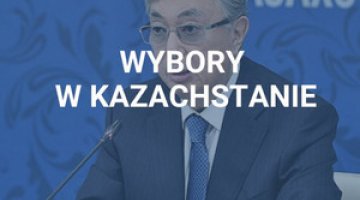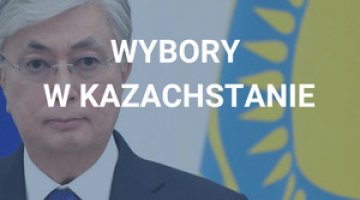Kazakhstan: a new prime minister for hard times
On 2-3 April there were a number of changes in key positions in Kazakhstan: Karim Masimov was named as the new Prime Minister (the government remained unchanged) and his previous role as head of the presidential administration was taken by Nurlan Nigmatulin, who had hitherto been the chairman of the lower house of Kazakhstan’s parliament. Dariga Nazarbayeva, the President’s daughter, became head of the parliamentary faction of the pro-presidential party Nur Otan and deputy speaker of the Mejilis. The former Prime Minister Serik Akhmetov has taken over at the Defence Ministry.
Commentary
- Karim Masimov is regarded as a very efficient politician who enjoys the confidence of the president, and who has usually been delegated to particularly difficult tasks. His positions have included that of Prime Minister in 2007-2012; he dealt with the consequences of the economic crisis in 2007-2009; and he is also considered the architect of Kazakhstan’s closer economic ties with China (he studied in that country). The undisguised purpose of his appointment as Prime Minister at this time is to strengthen the government, both against internal challenges (increasing the effectiveness of reforms to strengthen the state), as well as the challenges of the international situation.
- The main challenges faced by the new Prime Minister involve the country’s relationship with Russia. Kazakhstan is seriously concerned about the crisis in Ukraine, and has felt direct pressure from Russia (Astana joined in recognising the result of the referendum in the Crimea, but it abstained from voting on the integrity of Ukraine during the United Nations’ General Assembly). The situation in Ukraine has strengthened Kazakhstan’s concerns about the Eurasian Union, the main post-Soviet reintegration project. Although Astana initially received it with enthusiasm, for years now it has been implemented at the expense of the interests of Kazakhstan; this May should see the finalisation of the agreements on the Union. Masimov therefore has the task of obtaining the best possible result for Astana in the Union documents, and of devising the most favourable mechanisms for Kazakhstan’s membership in the Eurasian Union, which will have serious long-term consequences for the country. The first speeches by the ministers of the ‘old-new’ government have already raised the issue of the costs of cooperation with Russia, and have included speculation about the desired increase in independence from Russian oil transit (for fear of Western sanctions) and a move to pipelines running through the South Caucasus, or even Iran, as well as the benefits of developing further cooperation with China (from Moscow’s perspective, Masimov has proved to be a clearly pro-Chinese politician).
- These personnel changes do not substantially affect the balance of power in Kazakhstan’s ruling elite, which are of essential importance both to the country’s current challenges and in regard to the expected future succession to President Nazarbayev (who is currently 74 years of age). Of note is the concentration of executive power in the hands of Masimov (who, as an ethnic Uighur, is not seen as a potential successor to Nazarbayev), as well as the clear empowerment of Nazarbayev’s daughter Dariga within the parliamentary and party verticals, which may suggest preparation for the evolution of Kazakhstan’s political system in connection with the succession.




